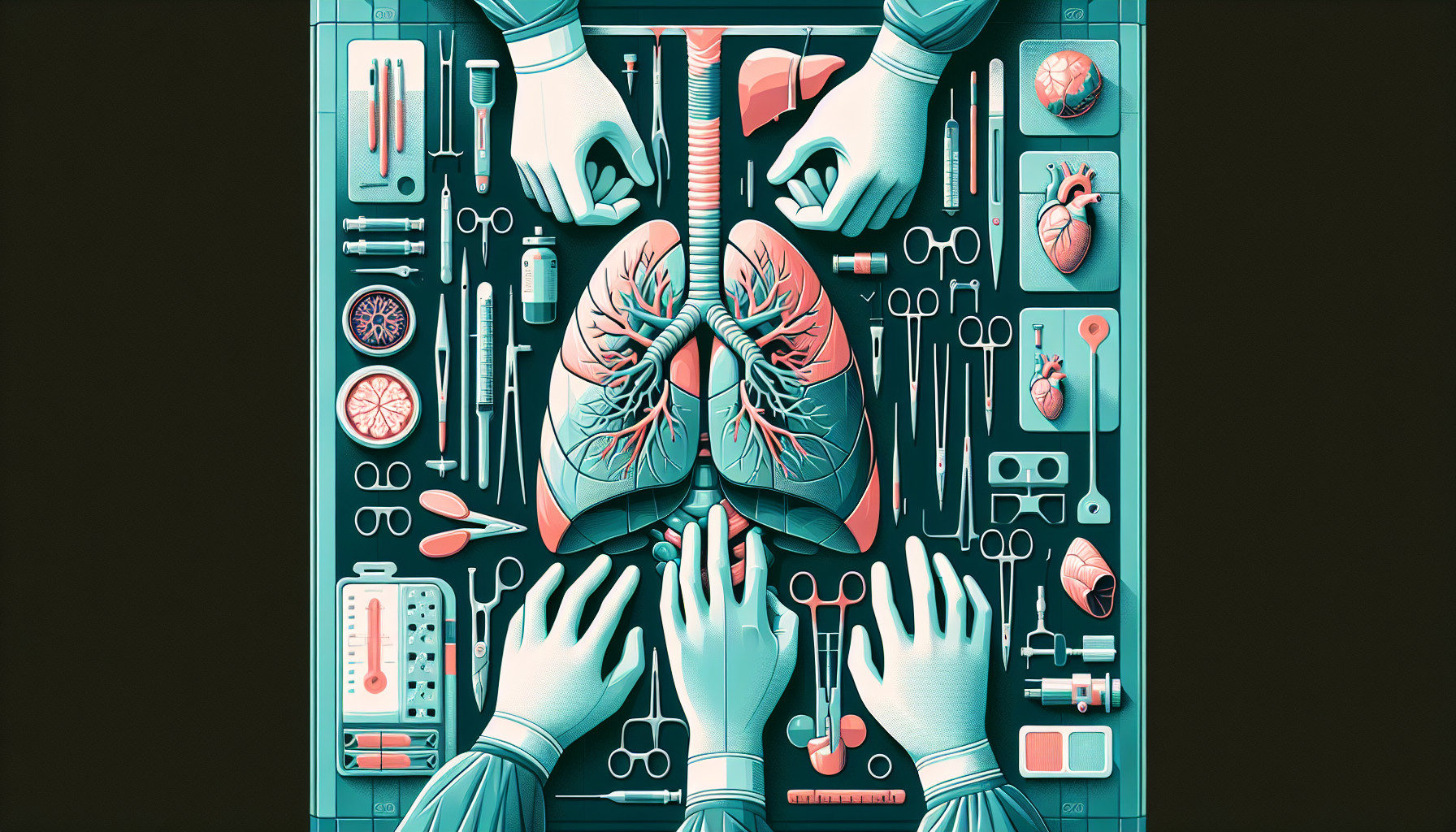Our Summary
This research paper is about a study reviewing the use of laser-assisted surgery for removing lung metastases, which are cancerous tumors that have spread to the lungs from other parts of the body. The study analyzed data from previous research, including 14 studies and 1196 patients. They found that laser-assisted surgery is a safe procedure, with nearly no deaths and manageable complications. The surgery successfully removed a large number of lung metastases and was less damaging to the lungs compared to traditional surgery methods. The survival rates of patients who underwent laser-assisted surgery were also similar to those who underwent conventional surgery methods. The findings suggest that laser-assisted surgery could be an effective way to remove lung metastases while preserving more of the lung tissue.
FAQs
- What is the focus of this research study on lung resection?
- How does the safety and effectiveness of laser-assisted surgery for removing lung metastases compare to traditional surgery methods?
- What were the survival rates of patients who underwent laser-assisted surgery for lung metastases?
Doctor’s Tip
One helpful tip a doctor might tell a patient about lung resection is to follow post-operative care instructions carefully, including proper wound care, pain management, and respiratory exercises to help improve lung function and prevent complications. It is also important to attend all follow-up appointments and communicate any concerns or changes in symptoms to your healthcare provider. Additionally, maintaining a healthy lifestyle, including quitting smoking and staying active, can help support recovery and overall lung health.
Suitable For
Patients who are typically recommended for lung resection include:
Patients with early-stage lung cancer: Lung resection is often recommended as a treatment option for patients with early-stage lung cancer, particularly if the cancer has not spread beyond the lung.
Patients with lung metastases: Patients with cancer that has spread to the lungs from other parts of the body, such as breast cancer or colon cancer, may be recommended for lung resection to remove the metastases.
Patients with benign lung tumors: Lung resection may be recommended for patients with benign lung tumors that are causing symptoms or are at risk of becoming cancerous.
Patients with lung infections: In some cases, lung resection may be recommended for patients with severe lung infections that do not respond to other treatments.
Patients with lung nodules: Lung resection may be recommended for patients with suspicious lung nodules that are at risk of being cancerous.
Patients with chronic obstructive pulmonary disease (COPD): In some cases, lung resection may be recommended for patients with severe COPD to improve lung function and quality of life.
Patients with lung damage from trauma: Lung resection may be recommended for patients with severe lung damage from trauma, such as a gunshot wound or a car accident.
Overall, the decision to recommend lung resection for a patient will depend on their specific medical condition, the location and size of the lung lesion, and their overall health and fitness for surgery.
Timeline
- Before lung resection:
- Patient is diagnosed with lung metastases through imaging tests such as CT scans or PET scans.
- Patient undergoes various tests and evaluations to determine if they are a suitable candidate for surgery, including lung function tests and blood tests.
- A treatment plan is developed by the medical team, which may include chemotherapy or radiation therapy before surgery to shrink the tumors.
- Patient is given pre-operative instructions, including guidelines on diet, medications, and lifestyle changes to optimize their health before surgery.
- After lung resection:
- Patient undergoes laser-assisted surgery to remove the lung metastases, which involves using a laser to precisely target and remove the tumors.
- Patient is monitored closely in the hospital for any complications, such as bleeding or infection.
- Patient undergoes post-operative care, including pain management, breathing exercises, and physical therapy to aid in recovery.
- Patient is discharged from the hospital once they are stable and able to care for themselves at home.
- Patient undergoes follow-up appointments with their medical team to monitor their recovery and discuss any further treatment options.
What to Ask Your Doctor
What are the potential risks and complications associated with lung resection surgery?
How will my recovery process look like after the surgery?
How long will I need to stay in the hospital after the surgery?
Will I need any additional treatments, such as chemotherapy or radiation therapy, after the surgery?
What are the long-term effects of lung resection surgery on my lung function and overall health?
How successful is laser-assisted surgery compared to traditional surgery methods for removing lung metastases?
What is the experience and success rate of the surgeon in performing laser-assisted lung resection surgeries?
Will I need any follow-up appointments or tests after the surgery to monitor for any recurrence of cancer?
Are there any lifestyle changes or precautions I should take after the surgery to promote healing and prevent complications?
How soon can I expect to return to my normal activities and work after the surgery?
Reference
Authors: Grapatsas K, Papaporfyriou A, Leivaditis V, Ehle B, Galanis M. Journal: Curr Oncol. 2022 Sep 26;29(10):6968-6981. doi: 10.3390/curroncol29100548. PMID: 36290825
